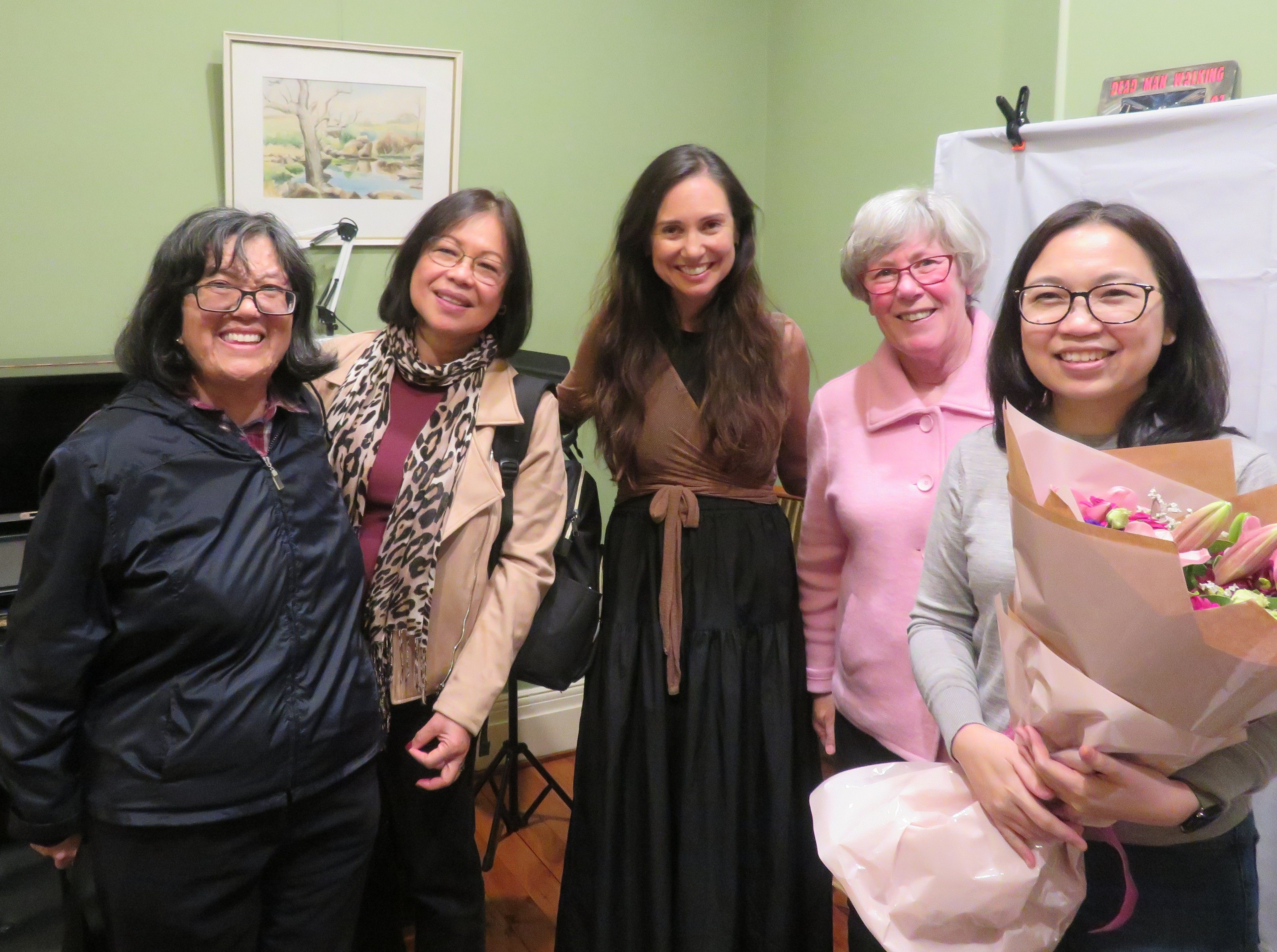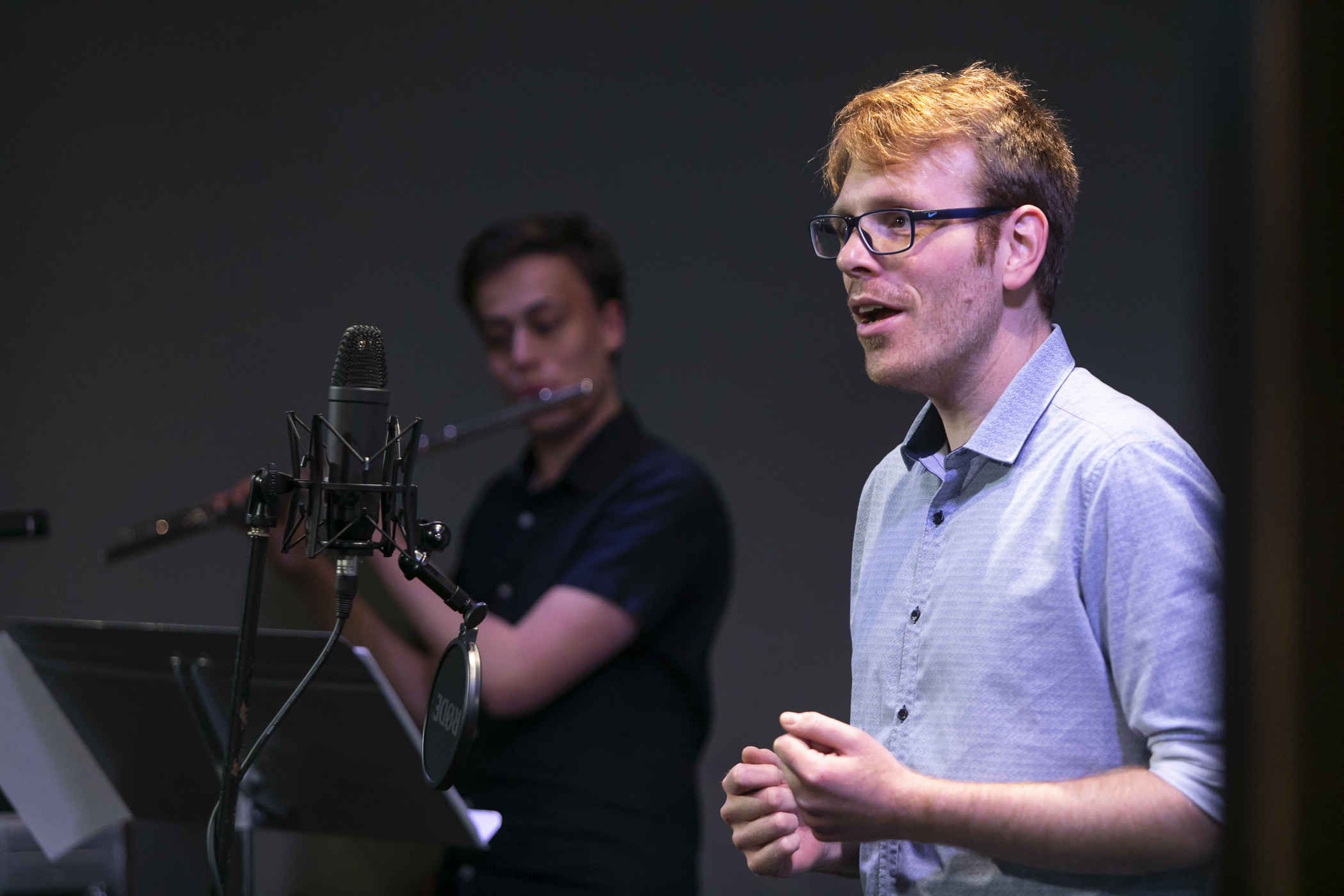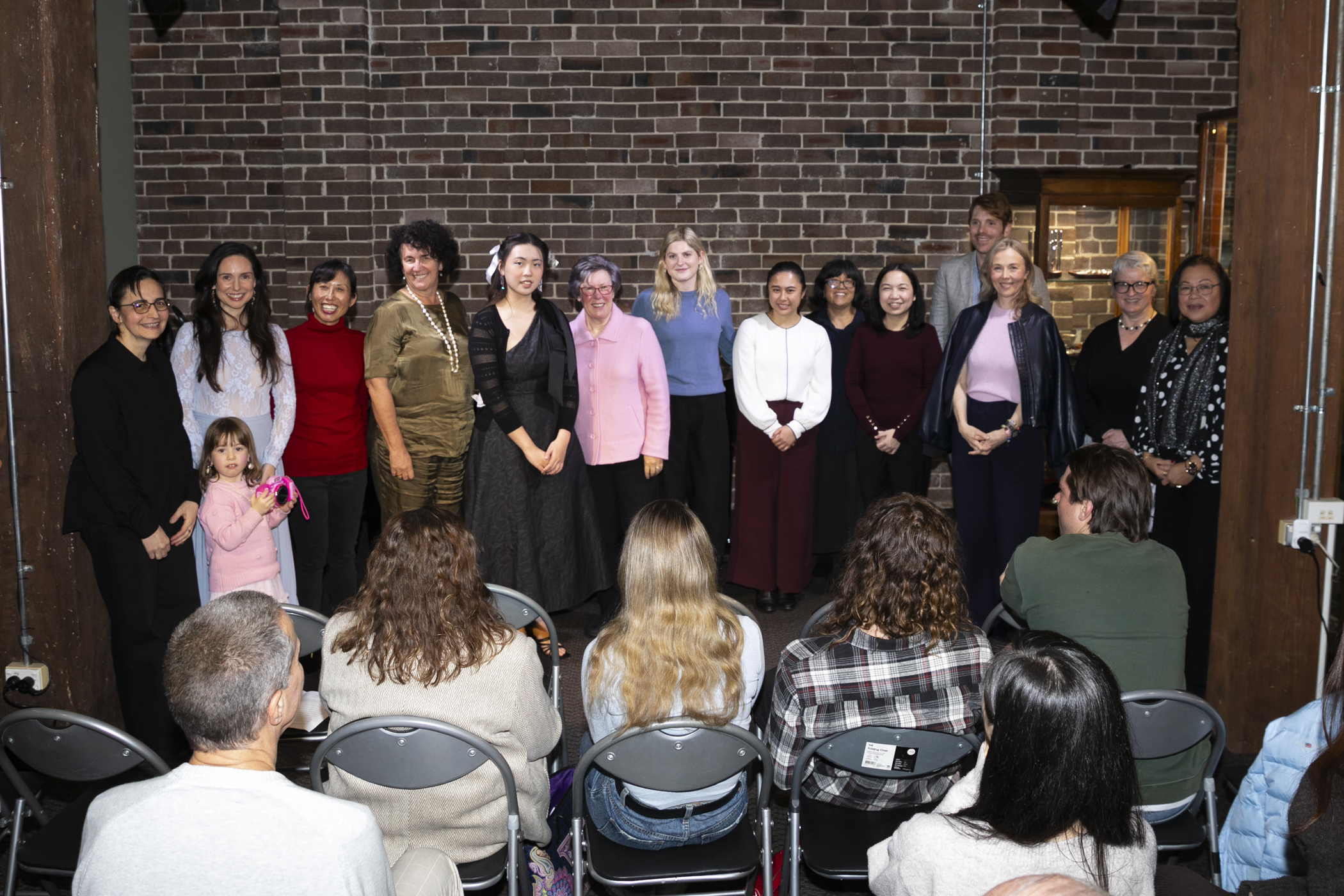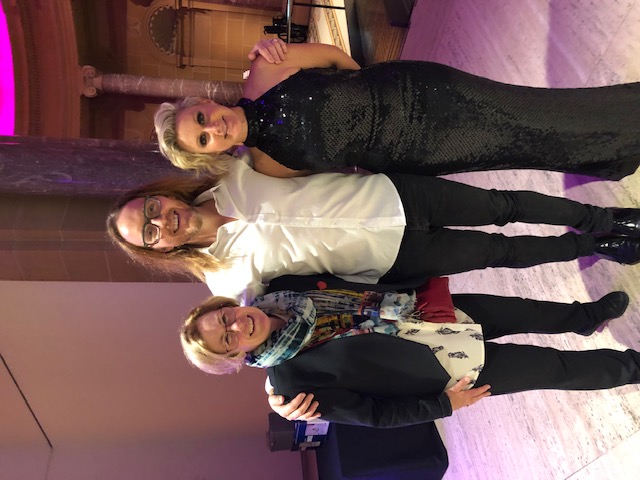How 4 singers found new passion and prowess in our French song workshop
One of the best ways to develop your singing is by getting feedback from other singers, in a non-competitive, intimate, constructive environment.
Whenever I’ve run singing workshops, I’ve found singers freely talk about their challenges and fears, while other singers make suggestions on how they solved a similar problem, or simply acknowledge the challenges.
We recently held a Sunday workshop on French songs, with four singers. The event was inspired by singer Anne’s solo French recital last year. When another singer, Celeste, joined our studio and I discovered she speaks French, I suggested she help Anne finesse her French in preparation for another recital this year. Meanwhile, other students requested French repertoire, not knowing I had a language coach for them, in Celeste! I suggested a workshop to bring these singers together and the idea was born.
The benefits of learning with your singing peers
A workshop bolsters confidence through peer training, helping singers work together through difficult parts of a song, or pick themselves up from a slump in practice. It fosters a feeling of mutual respect and can inspire your creativity and productivity.
You’re also introduced to new song styles you might not have considered before, which broadens your repertoire and musicianship. And when you work with other artists, you learn from their processes, struggles and triumphs. A workshop allows a singer to experience new and uncomfortable things and related emotions in a safe, supportive space. It also develops your discipline to ‘keep you showing up’ to your practice and working through challenges.
Found in translation: exploring language, story and technique
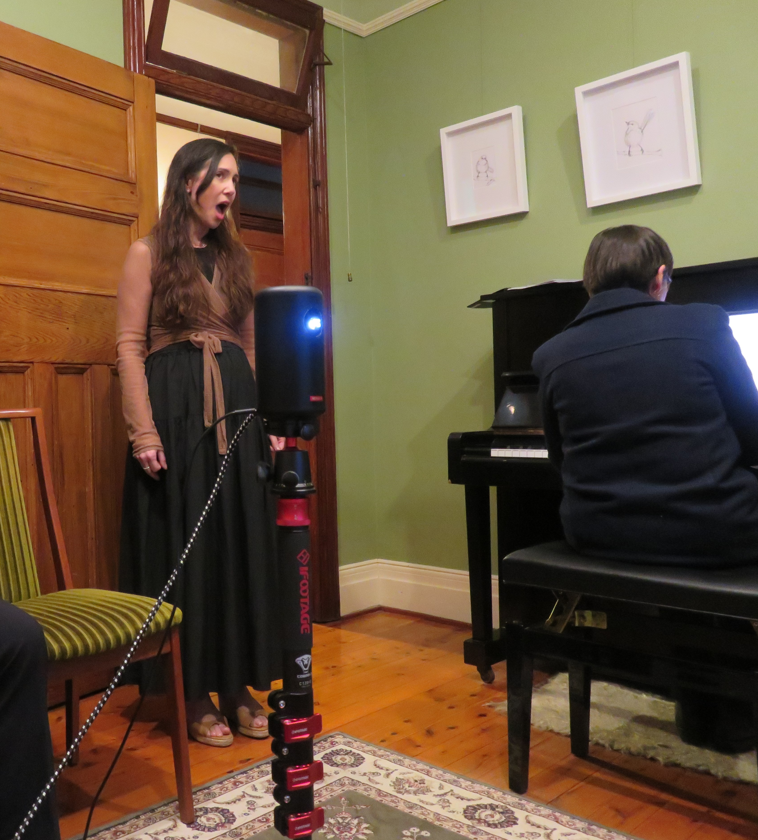
Tina with Alison during our French Workshop
Our workshop participants wanted to not only finesse their French pronunciation, but better connect their pronunciation to the melody and story of their song. Celeste had produced a PowerPoint with their songs translated into everyday English, which helped us understand the motivations behind each song.
Belinda worked on ‘Je ne t’aime pas’ (Kurt Weill), to achieve a more spoken cabaret-style of singing. Working with accompanist, Alison, they leaned into the minor-major harmony changes that indicate the singer’s complex feelings, bringing more intensity to the words and sound.
Tina worked on ‘Je n ’ai pas son coeur’ (S. Schwartz), the French version of ‘I’m Not That Girl’ from Wicked – a favourite musical of hers. For some context, Celeste had found an Instagram post of Michelle Ashley Foster singing it in French, with her French coach supervising. We explored the issue of ‘To roll the R or not’. In this style of singing, R is used in a more spoken manner.
Anne tackled ‘Les Spectre de la Rose’ (Hector Berlioz), which needs a firm underpinning of three in a bar – it is marked as 9/8. The workshop helped Anne secure this aspect of the musicianship, as well as the challenging accompaniment and the long legato lines requiring serious breath control.
Celeste worked on ‘Reve d’amour’ (G. Fauré). With her already fluent French, we worked on one particular note and word, Nid, sung high on F5 at the end of a phrase, which can sound a little tight. Working with Alison, Celeste discovered that by slowing the phrase too much to give it colour, the back of her mouth closed, reducing the space. So, Celeste kept the beat’s momentum going, which improved the tonal quality.
Reflections on a creative, collaborative day
After the workshop, we sat around and each singer discussed their fears, thoughts, and what they got out of the day.
Celeste reflected on having arrived in Australia from The Philippines with few expectations, and finding herself connecting her two great passions: singing and French.
“Singing has long been a passion and I’ve sung in choirs. I’ve questioned why I continued to learn French when I haven’t even been to France – and I have travelled a lot,” she said. “Connecting both singing French songs, and learning the language has been an opportunity I never expected.”
Tina observed that she had studied French at university but had done little with it. “Now, singing some of my favourite Disney and music theatre songs in French was a beauty I had never imagined.”
Anne described her journey from singing in bands to trying opera before finding her true passion in learning French Art Song. Now Celeste is working with Anne on honing her French before her second recital at St Stephens Church Macquarie Street, in October.
Belinda was happy being with other singers, working on a style of song she hadn’t imagined enjoying. She felt she gained much from listening to others, hearing Celeste’s suggestions and matching that with the musical issues Alison raised.
As a singer, you can stick with the music you know and love, but it takes effort and courage to leave your comfort zone and work on unfamiliar languages, composers and genres. Challenging yourself this way is vital for your growth as a singer, and going off tangent among supportive singers, is a great way to build your confidence as a performer.
Our accompanist Alison is keen to be involved in future workshops, as they achieve so much in such a collaborative environment. So, stay tuned!
Kathleen Connell helps students learn songs in various languages. And our range of in-person or online singing lesson packages suit singers of all levels. To enquire, call 0402 409 106.

